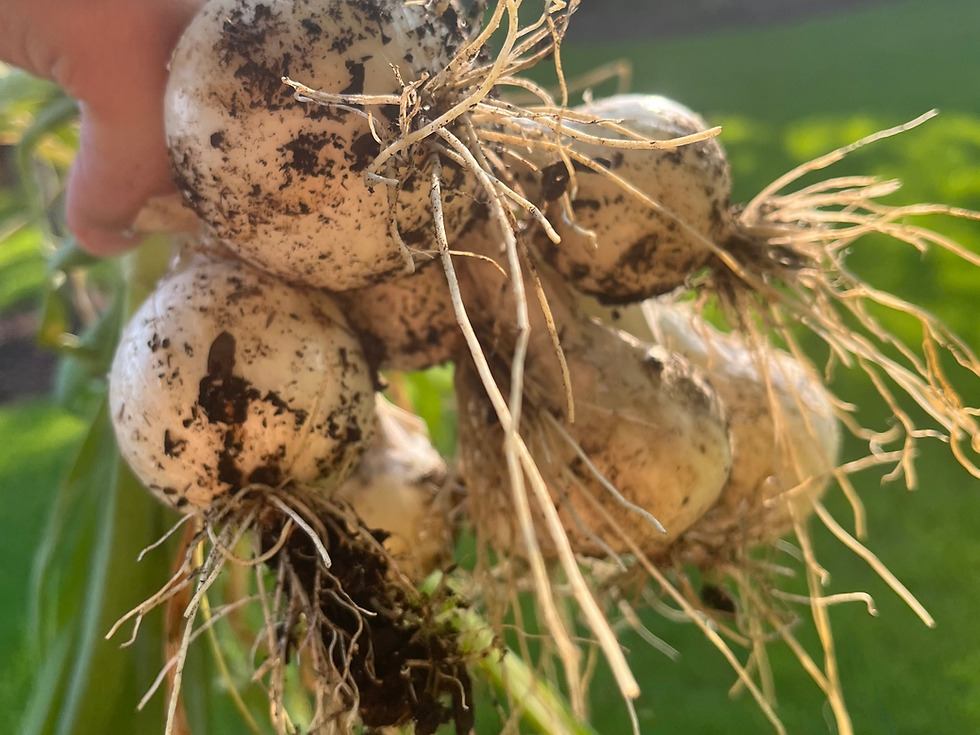Decoding Onion Types: The Difference Between Long-Day, Short-Day, and Intermediate-Day
- matthewdaves04
- Jul 13, 2023
- 2 min read
Choosing the right onion variety is essential for successful gardening. Understanding the differences between long-day, short-day, and intermediate-day onions is key to cultivating thriving crops. When I first started gardening my onions harvest struggled because I didn't understand these simple ideas. In this article, we'll delve into the characteristics, growing conditions, and popular varieties of each type. Let's unravel the secrets of these onion types and discover which ones are best suited for your region.

I. Long-Day Onions: Thriving in Northern Climates
Long-day onions require more daylight hours to form bulbs properly. Here's what you need to know:
Characteristics and bulb development of long-day onions
Ideal regions and climates for growing long-day onions
Optimal growing conditions, from soil preferences to temperature range
Popular long-day onion varieties, such as 'Spanish Sweet' or 'Walla Walla'
II. Short-Day Onions: Flourishing in Southern Climates
Short-day onions form bulbs with fewer daylight hours. Here's an overview:
Characteristics and bulb formation of short-day onions
Geographical regions suitable for short-day onions, including warmer climates
Essential growing conditions, including soil preferences and temperature requirements
Well-known short-day onion varieties, like 'Texas Early Grano' or 'Bermuda'
III. Intermediate-Day Onions: Versatility for Moderate Climates
Intermediate-day onions fall between long-day and short-day types. These are the ones that have seen to do the best in my region of Mississippi. Explore the following aspects:
Characteristics and adaptability of intermediate-day onions
Regions with moderate climates suitable for intermediate-day onions
Optimum growing conditions, including temperature and day length
Prominent intermediate-day onion varieties, such as 'Red Candy Apple' or 'Candy'
Conclusion:
Decoding the differences between long-day, short-day, and intermediate-day onions allows you to make informed choices when selecting onion varieties. By understanding the specific growing conditions and characteristics of each type, you can optimize your onion cultivation for a bountiful harvest. Whether you're in a northern or southern region or fall somewhere in between, selecting the right onion type will set the stage for success in your garden. Enjoy the journey of growing flavorful onions tailored to your specific climate and preferences. Happy gardening!






Comments